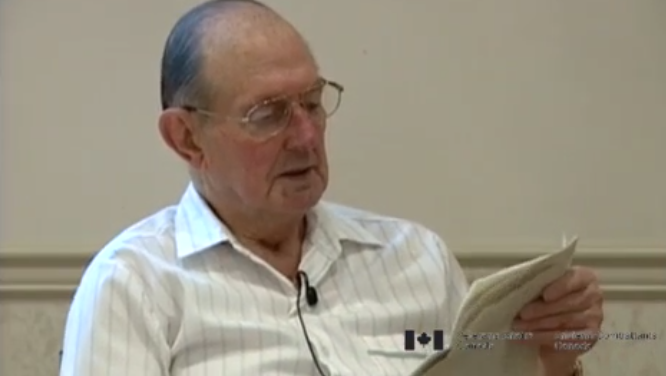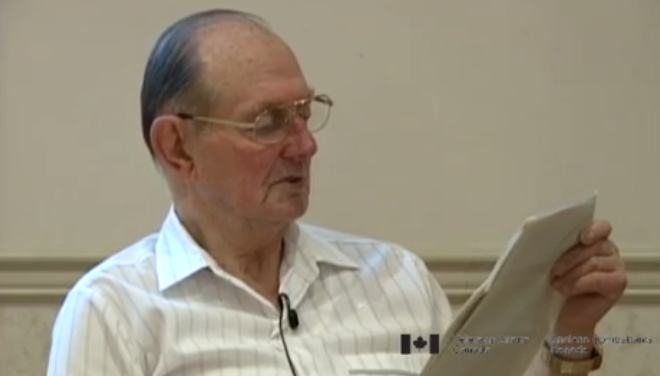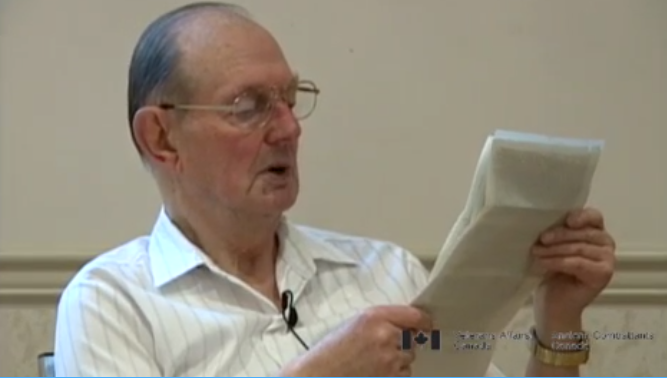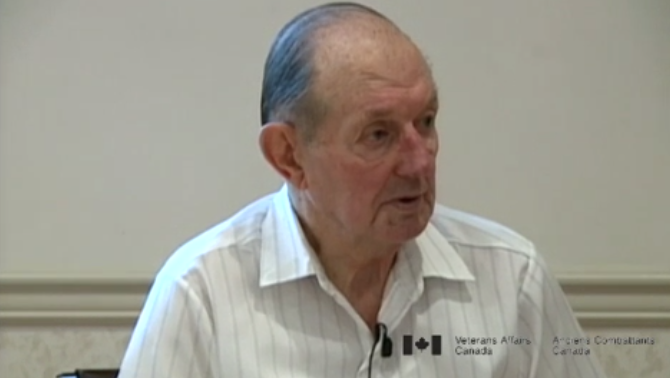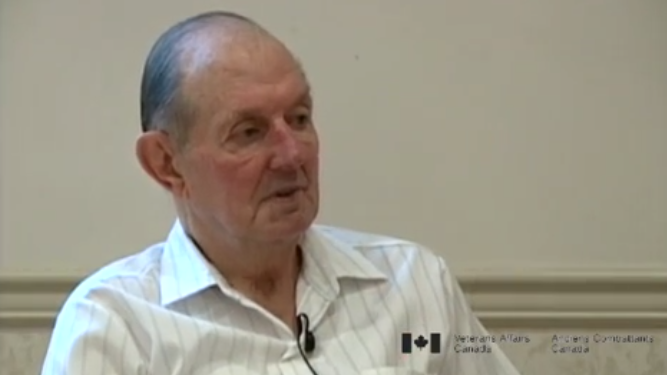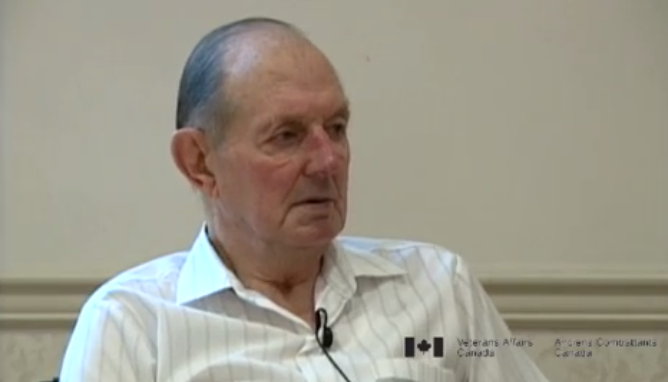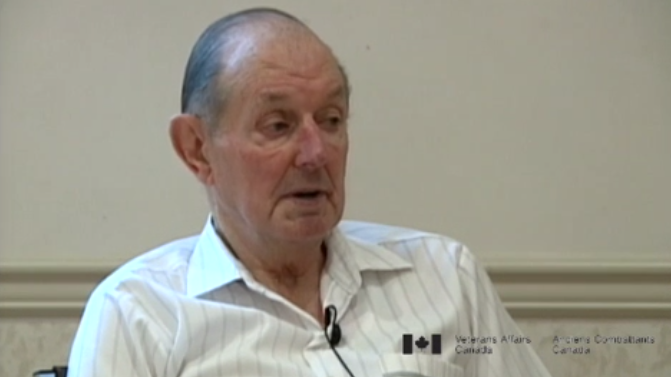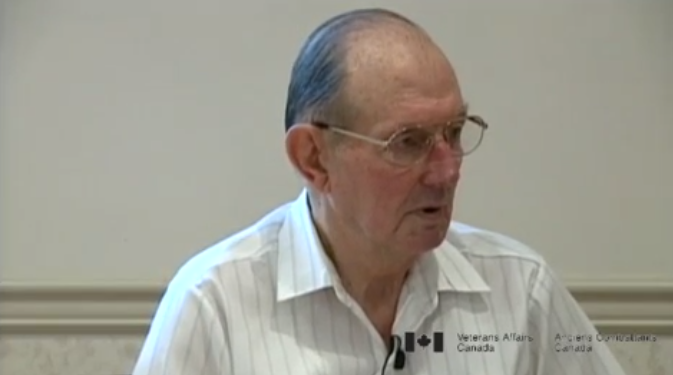About 3:30 or 4 o’clock on the morning of the 22nd,
all hell broke lose. The Japs had crawled along the tops
of the shelters and were lobbing grenades down in fine style.
We suffered many casualties.
Many of the men were already wounded and the exploding grenades
had a most demoralizing effect on them - men who were dead,
beat having little or no sleep for three days, no food and
only a bit of rainwater that they were able to catch.
The fighting an enemy we could not see, but be seen by them,
didn’t help matters.
We could see the grenades coming as they had a sort of fuse
affair attached and could be seen in the dark spinning and
sparking before they exploded.
I was standing in front of the cookhouse trying to get a shot
at any Jap that was on top of the shelters.
Just then, a soldier armed with a Tommy gun opened up on the
bushes in which Major Linden and many other men were.
I did not know whether he was English or Canadian.
I took the gun from him and asked what he was firing at.
He was hysterical. He said that he had seen movements in the
bushes and thought that they were Japs.
I put another clip in the gun and resumed my position and tried
to get a bead on anyone at the top of the shelters.
It was dark but possible to discern movement.
Just then I heard a voice call, ‘Barton,’ and the slithering
of a body into the deep drain that ran in front of the cookhouse
down into the valley. It was Major Linden’s voice.
I did not attempt to go to where he had been.
The conflict was hot, the hottest up to that time.
I joined Cornell and Pacey later on. We lay behind a bit of
a rise affording some protection. The grenading continued.
Later, it was difficult to estimate just how long, someone
near the cookhouse shouted, ‘Japanese! We surrender.’
I do not know who it was.
We shouted back for him to keep quiet and that we would fight on.
We all knew the odds were heavy against us but refused to think
of them. Again, ‘Japanese, surrender!’
We shouted to keep quiet or we would fire on him.
He stated, ‘Colonel Walker had ordered it.’ That was different.
Cornell, Pacey, and myself had a hurried counsel of war.
What to do. We decided that we didn’t want to be taken prisoners
just then and thought that while there was a chance
we would take it, although we felt guilty leaving the wounded.
Several of the others felt the same way but they went
their own way down the valley.
We decided to take the road, see what we ran into, and then worry
about it. We worried plenty.
If it had not been for the coolheadedness of Pacey,
I doubt if any of our three would be here.
But that does not relate to the Wong Nai Chung.
The other groups managed to get through the Jap lines
down the valley and to safety. The Japs were gradually
closing in on us from the rear. Perhaps that is why they never
attempted to rush us at the gap, but the amazing thing is that
‘B’ Company, the Royal Scots were down the road about two or
three hundred yards below the large body of Japs
that were closing in on us and had not engaged them.



